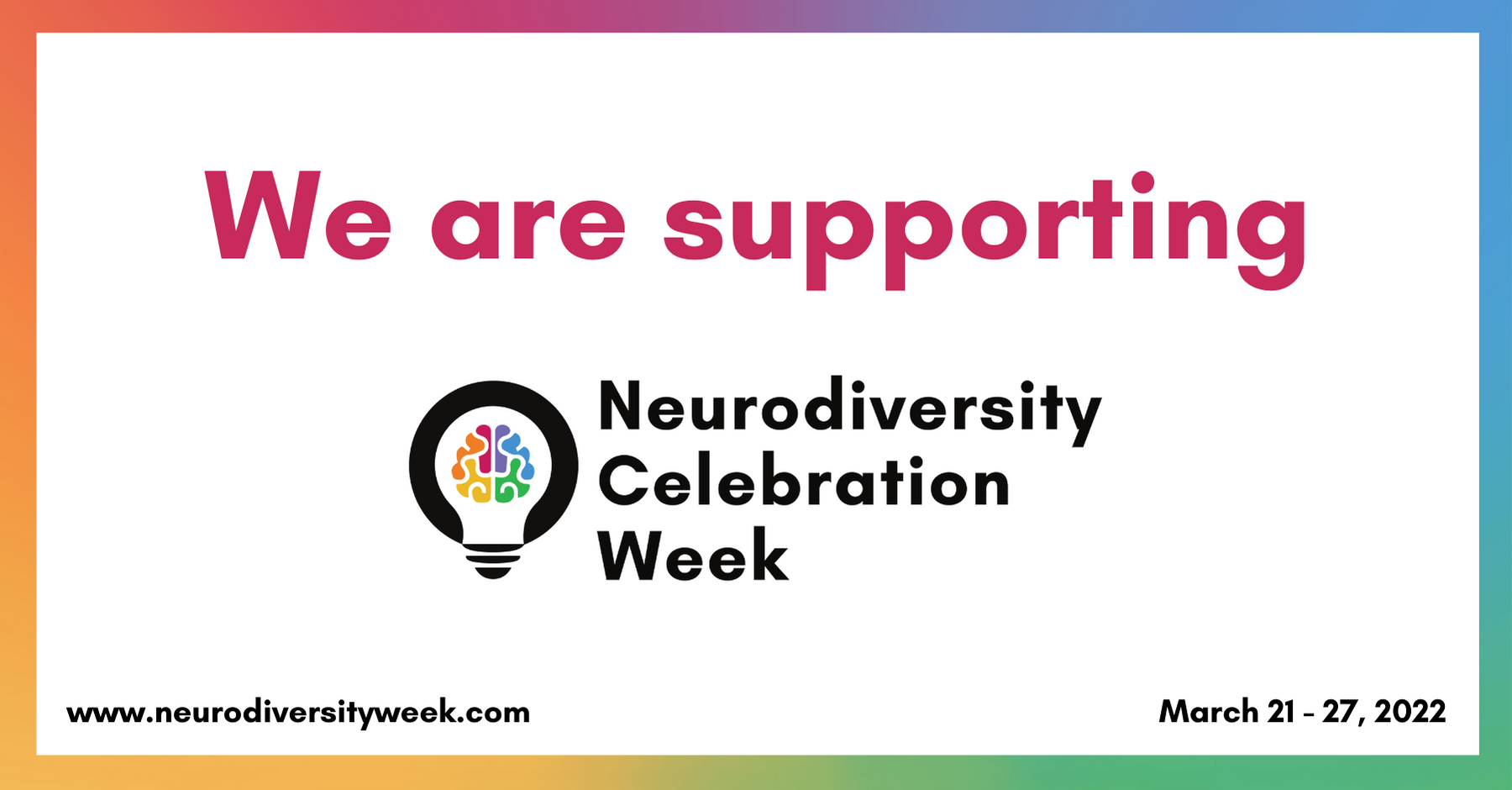Neurodiversity Celebration Week 2022 – myth busting
Martin Griffin CEng FIMMM, Senior Geotechnical Engineer at Knight Piésold Limited and Chair of the IOM3 Ably Different Group (ADM3) looks at some of the myths that persist about neurodiversity, how they affect those of us.

This week, we celebrate Neurodiversity Celebration Week (21–27 March 2022) created by Siena Castellon. It is an annual celebration to challenge stereotypes and misconceptions associated with neurodiversity and its conditions, while also celebrating their strengths and raising awareness within education and the workplace. For my contribution this year, I have assembled this post and co-presenting a lunchtime session to the Institute of Directors (Yorkshire & North East branch) on neurodiversity in the workplace.
The term neurodiversity originated in 1998 by Judy Singer, it refers to the range of differences in individual brain function and behavioural traits and is especially used in reference to people with a variation in neurocognitive functioning. For example, those with differences in learning, thinking, reasoning, remembering, processing, problem-solving, decision making and attention. Neurodiversity is an umbrella term that encompasses identified and observed conditions of recognised neurocognitive differences such as autism, attention deficit hyperactivity disorder, dyslexia, dyspraxia, dyscalculia, Tourette’s syndrome, anxiety, obsessive-compulsive disorder, depression, intellectual disability, and schizophrenia, as well as ‘normal’ neurocognitive functioning, or neurotypicality.
In short, neurodivergent (ND) individuals are those whose brain functions differ from those who are neurologically typical, or neurotypical. These neurological variations are a vital part of humanity, as much as variations in size, shape, skin colour and personality. No one has the right to try and improve upon our species by deciding which characteristics to keep and which to discard. Research indicates that around 15% of the population are dyslexic, approximately 8% are dyspraxic, and 1% who recognised as being autistic. The precise numbers are very hard to establish for numerous reasons, due to no official disclosure rates and there are many undiagnosed cases.
I am a mixture of overlapping conditions – autism, dyslexia, and dyspraxia (all formally diagnosed), coupled with a visual impairment (keratoconus), but in what proportions they affect me I don’t know. Ultimately, these are only labels which can be helpful in terms of basic reference points for self-identity but there is a great danger of remaining in an ND group and/or refusing to mix in the NT world. Since every one of us has a unique brain, strengths, weaknesses, and personality – we can all learn from each other. Everyone is normal till you get to know them – we all want to look normal, to think of ourselves as normal we all need acceptance of differences. These differences shape us, make us better, not worse but as equal fellow human beings.
In society and in many workplaces, there remains many negative stereotypes and misunderstandings about neurodivergent individuals. Just because our brains work differently than those of neurotypical (NT) brains, it does not mean that we are clumsy, stupid, lazy or odd or that we cannot or should not be valued, appreciated and included. Growing up in the 1980s, there was very little support and less awareness in education, the workplace and society compared to today.
Many film and television characters, Forest Gump, Sheldon Cooper Raymond Babbitt and Captain Jack have also led to myths about those who are ND. For example, the film Rain Man dispels some misconceptions about autism and improves public awareness of the failure of many agencies to accommodate autistic people and make use of the abilities they do have, regardless of whether they have savant skills or not. These media adaptions and many others do portray erroneous stereotypical behaviours and snapshots – they present myths and half-truths of both NTs and NDs alike. These can shape us, our communities, our society, and our workplaces.
There are many myths that persist about neurodiversity and how they affect those of us, especially in the workplace. Both Stephanie Barnes, Diversity, Equity & Inclusion Strategy Consultant and Aiyana Bailin, an autism care professional and disability rights advocate have written some very useful pieces on these myths. I have made use of both their articles as a framework but added to placed greater emphasises on my lived experience to further dispel these myths:
Myth 1 – Neurodivergent individuals are alike
Each neurocognitive condition is unique to an individual and it is not a single disorder but a diverse spectrum of related conditions that share many core symptoms. We are all unique regarding our level of condition and differing combinations of symptoms. Each has unique challenges to face and adopt a variety of combinations of coping strategies and reasonable adjustments (accommodations) to minimise the problems. Some manifestations of my conditions are more challenging than others, with or without these adjustments. Days to me can be ‘good’, ‘bad’ and some are ‘demanding’ but still being rewarding.
Myth 2 – They are best suited for jobs with repetitive tasks
Just like NTs, there is no specific job that is appropriate for all neurodivergent individuals. Not all NDs are entrepreneurs or engineers, not all are or want to be celebrities. Some NDs may enjoy repetitive tasks, that is not true for all of us who are neurodivergent. Never assume that a role or task is good for us, or we would be unsuitable to do, based on what you have read as tabloid headlines, or thinking you know all about us all by speed-reading the general traits of neurodiversity – truly you have only just seen one side of the coin.
Myth 3 – They cannot or do not want to form relationships
We can and do have fulfilling relationships with family and friends. Agreed, social interactions are hard due to misunderstandings, for example, being autistic and having to work hard at social interactions or navigating social relationships, understanding social cues and even being too blunt at times. We should never end up feeling depressed or isolated when we are unable to connect with others. True and genuine friendship is when we accept one another and are aware of our differences. This will not happen overnight – it needs hard work to maintain.
Myth 4 – Neurodivergent people have intellectual disabilities
Like some neurotypical individuals, some NDs also have an intellectual disability, but that is not the case. Many neurodivergent individuals have an IQ within the typical range or higher. Our main problems arise from barriers in society. We may face problems particularly in the way we perceive things, the way our thoughts processes information, and the interaction impairments which are not related to intellectual disabilities. We are not broken or incomplete versions of other people.
Myth 5 – They have little chance of being successful
The world was made by NTs and we may appear to see the world slightly differently because it was typically set up for NTs. But we see it from a different perspective, this does not mean that we cannot live fulfilling lives such as in our chosen profession. In 2018, EY published The Value of Dyslexia report which presents our typical strengths as being – specific skills – visualising, imagining and communicating and general skills – reasoning, connecting and exploring. Surely every employer would love employees with the skills and strengths. It is true, some ND individuals may need more support than others. Yet, each one of us is valuable and have placed society and the workplace. Providing us with the bespoke tools to succeed in the workplace means we can be financially (or physically) independent and flourish. When we work to our strengths and not weaknesses when our views are respected, we can do many great things and of being extremely successful and achieving our personal goals for instance promotion or Chartership.
Myth 6 – They lack communication skills
Some ND individuals may lack the necessary social skills to be successful during job interviews and in the workplace. We also often may have a preferred way of communicating. Some may have trouble with verbal communication which can be due to anxiety or just needing more time to process any information that they receive verbally. However, it is common for many NDs can communicate better in other ways for instance writing or using PowerPoint. An employer should take the needs, preferences and interests of the person seeking employment into account and to remember that we can be taught certain social skills. Our far-reaching skills and talents (mentioned in point 5) will greatly benefit our employer as acceptance is in place and adjustments are in place.
Myth 7 – Neurodivergent people lack empathy and are loners
It is commonly mistaken that NDs and especially autistic people lack emotions or empathy. This myth causes much harm, either physical or psychological made by others. The ability to feel along with others) and/or sympathy (the ability to feel for others is still experienced by many who are neurodivergent. For example, I maybe sometimes slow in awareness, processing and picking up on others’ emotions but I do experience them internally and at times these can feel overpowering and confusing, and particularly stressful which may cause me to shut down and withdraw from crowds.
Myth 8 – The goal should be to encourage neurodivergent people to be like their neurotypical peers
Expecting NDs to think and behave as NTs is highly damaging. Our brains are wired and work differently than those of NTs. Being neurodivergent is real, common, messy, lifelong with no magic potion. We should not have to mask our conditions and struggle to fit in – excessive masking can lead to anxiety, excessive worrying, social confusion, exhaustion, Imposter Syndrome, stomach aches, panic attacks, and a need for perfection. Our differences should be welcomed and accepted. The faster society accepts them and our differences, sees the benefits and supports them, the faster ND’s will love and accept ourselves which will allow them to become our best selves and become an asset to the workplace.
Martin Griffin CEng FIMMM, Senior Geotechnical Engineer at Knight Piésold Limited
Find out more about ADM3


